Studs Lonigan. Native Son. The Man with the Golden Arm. The Adventures of Augie March. Every serious student of Chicago literature has read those books. They were all written a long time ago, though, and they describe a city that most of us don’t recognize. Great authors are still writing great books about Chicago, though. It’s time to update our local literary canon. Here are 10 of the best 21st Century Chicago novels.
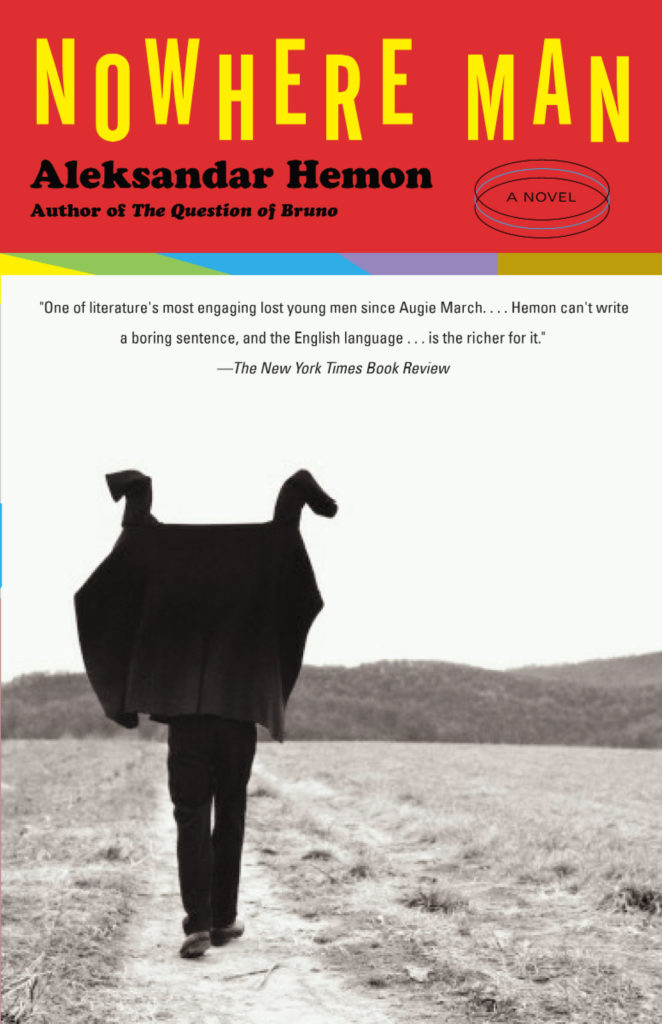
Nowhere Man (2002)
Hemon, a native of Sarajevo, was visiting Chicago when the Bosnian War broke out in 1992. He stayed here, and built a career as one of the city’s most prominent fiction writers. The autobiographical Nowhere Man is about Jozef Pronek, a Bosnian refugee stranded in Chicago, who supports himself by working as a Greenpeace canvasser, just as Hemon did. The book takes its title from a song by the Beatles, who Jozef tried to emulate in a band back home. Their music has a place in every culture; Jozef has a place in none.
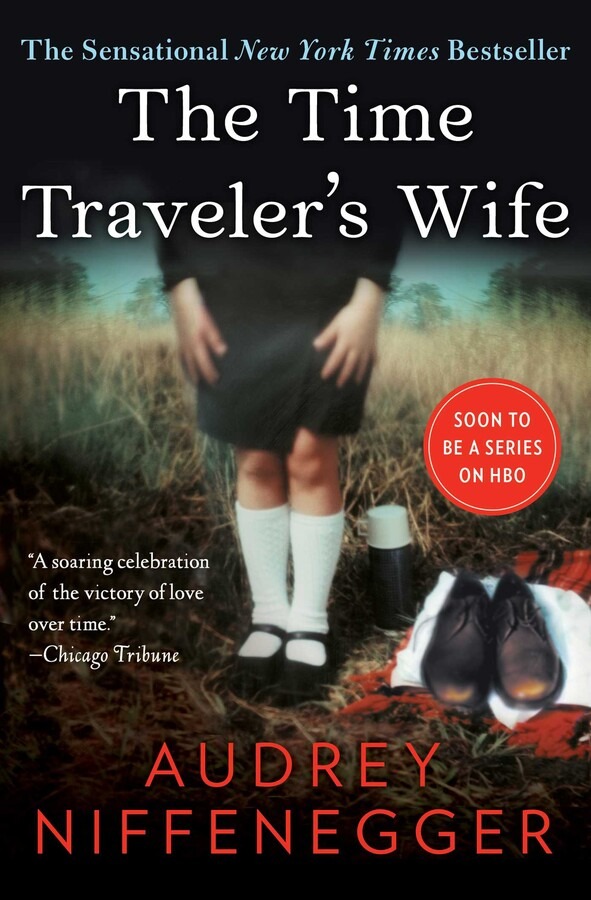
The Time Traveler’s Wife (2003)
An unexpected blockbuster, this modern fantasy involves a romance and marriage between Henry, a librarian at the Newberry Library, and Claire, an artist. They first “meet” when Henry is 28 and Claire is 20, but they’ve actually met many times before. Henry is afflicted with Chrono-Impairment, which causes him to involuntarily travel through time. His future self repeatedly time traveled to meet his future wife during her youth. Eventually, his past self visits Claire during her old age. A portrait of young professionals in turn-of-the-millenium Chicago, the book was adapted into a 2009 movie and a 2022 HBO series.
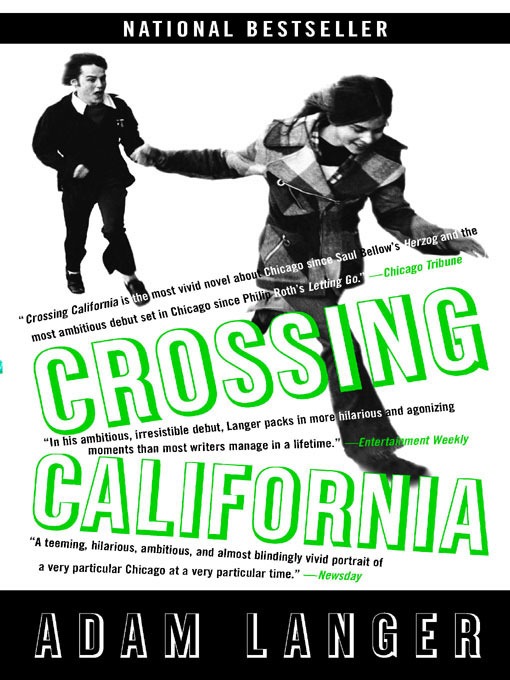
Crossing California (2004)
by Adam Langer
In West Rogers Park, California Street is a boundary: between Muslim and Jew, striver and settled. Langer, who grew up in the neighborhood, crafted a comic triptych of three families — the Jewish Rovners and Wasserstroms, and the mixed-race Willses — in the late 1970s and early 1980s. Langer’s coming-of-age novel captured the diversity of Rogers Park, as well as the insularity of a city that had yet to emerge from its 20th Century provincialism.
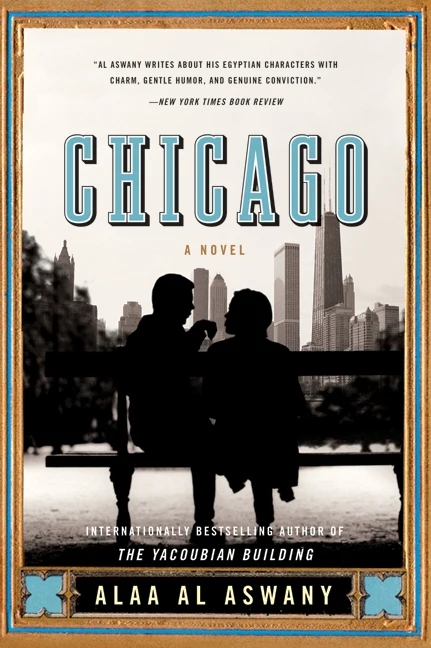
Chicago (2007)
by Alaa al-Aswany
Al-Aswany, an Egyptian novelist, studied dentistry at the University of Illinois-Chicago, so there he strands his international student characters. Despite its title, Chicago is an Egyptian novel that could have taken place in any American city. All of his characters are still connected to Egypt, such as the president of the Egyptian Students Union, who informs on dissident classmates to the secret police when the actual president of Egypt visits Chicago. The most tragic: a medical student who allows her veil to sag in America, gets pregnant, and is pressured into an abortion by her ambitious boyfriend.
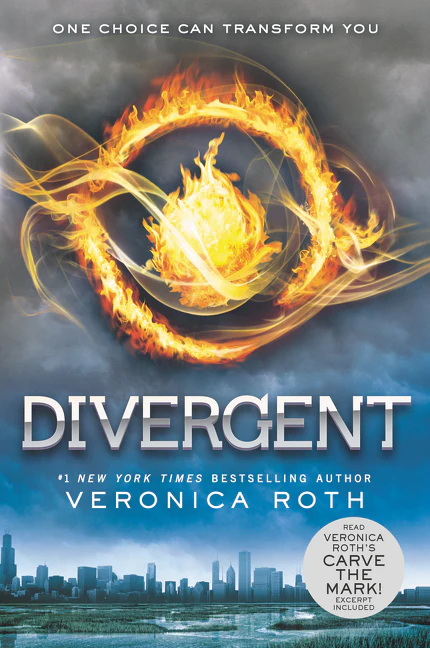
Divergent (2011)
A young adult novel set in a post-apocalyptic Chicago, Divergent follows 16-year-old Beatrice Prior as she seeks to find her place among the five factions who rule the dystopian city. Tris grew up in the plain-living Abnegation faction, but after a test reveals that she’s “divergent” — a natural member of no tribe — she defects to join the daring Dauntless. Roth published the book shortly after graduating from Northwestern, and followed it with the sequels Insurgent and Allegiant. The 2014 movie grossed $288 million.
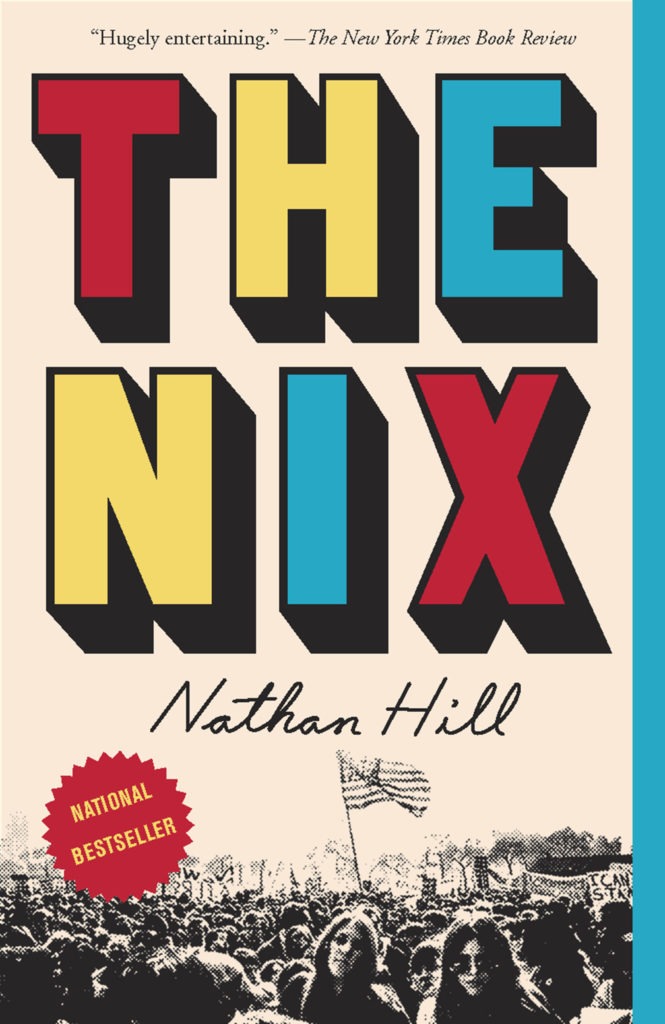
The Nix (2016)
by Nathan Hill
Samuel Anderson-Andresen grows up in Streamwood, the son of a staid father who works in frozen foods, and a frustrated hippie mother who suddenly abandons the family when he’s a teenager. Two decades later, Samuel and his mother reunite after she throws a handful of gravel at Sheldon Packer, a conservative presidential candidate campaigning in Chicago. Samuel is an English instructor at a northwest suburban college who can’t finish his novel, and hopes to revive his publishing career with a tell-all about “the Packer Attacker.” The book’s multi-generational narrative takes side trips to Iowa, Norway, and the 1968 Democratic National Convention.
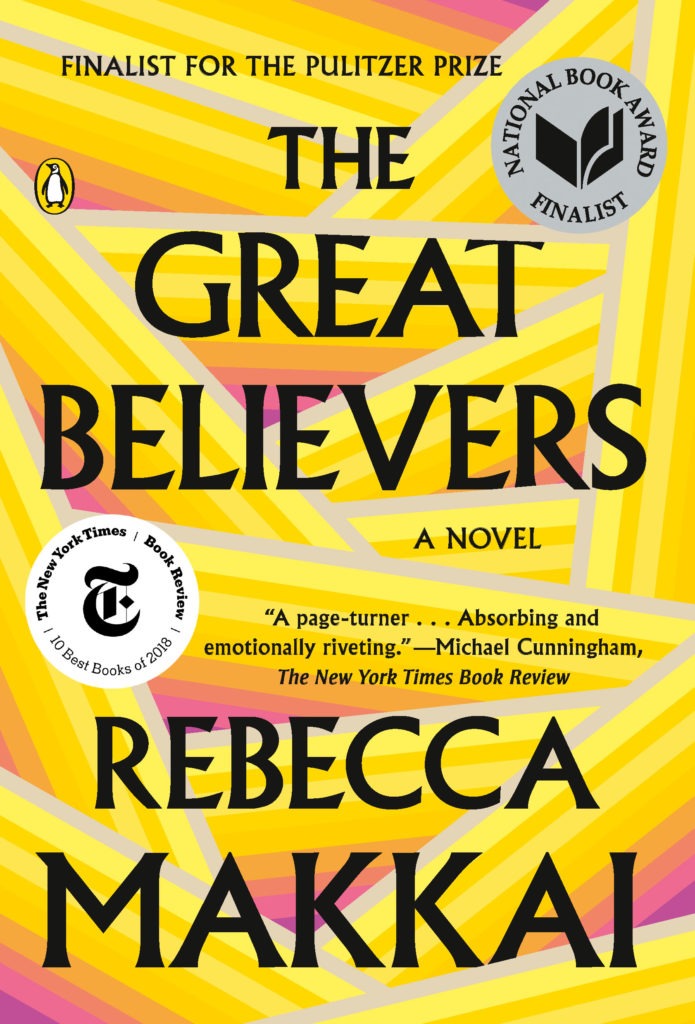
The Great Believers (2018)
In 1985, Yale Tishman is a young, gay art curator at Northwestern University, trying to acquire a set of valuable paintings from a family in Wisconsin. In 2015, Fiona Marcus is a desperate mother, searching for her lost daughter in Paris. The AIDS plague of the 1980s hovers over both stories. Yale, who lives in Boys Town, is losing friends and worried about his own mortality. Fiona’s brother died of the disease 30 years earlier. Makkai’s period detail is impressive: her characters seek treatment at Howard Brown Health Center, founded to treat LGBTQ+ patients.
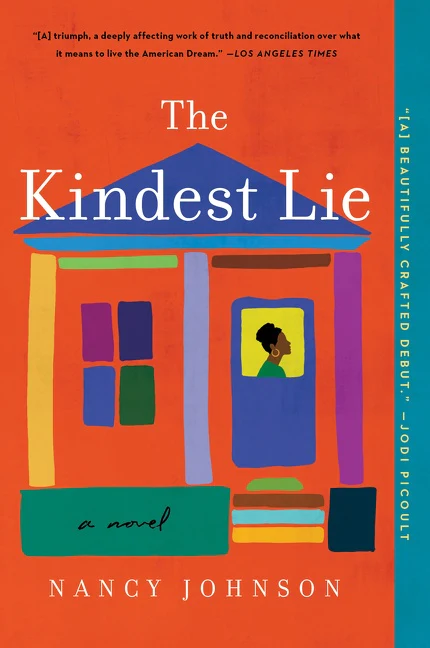
The Kindest Lie (2021)
by Nancy Johnson
Ruth Tuttle is young, successful, and Black on the South Side of Chicago at a moment when another young, successful Black South Sider is elected president of the United States. Ruth went to Yale and built a career as an engineer, but was only able to do so because she gave up a baby boy when she was a teenager. Before she can start a family with her husband, Ruth must return to her blue-collar Indiana hometown — which seems a lot like Gary — to find out what became of her son.
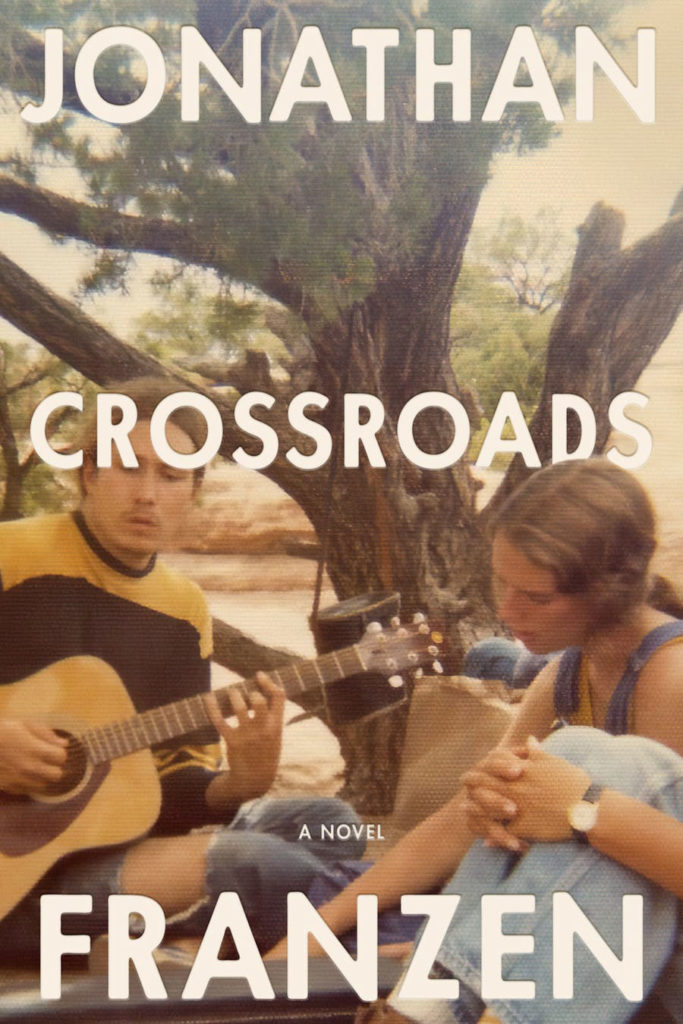
Crossroads (2021)
by Jonathan Franzen
At this moment, it could hardly be less fashionable to publish a novel about a middle-aged, middle-class pastor having a midlife crisis at a Mainline Protestant church in a mid-century Midwestern suburb. Franzen was born in Western Springs, the model for New Prospect, Illinois, where 47-year-old Russ Hildebrandt serves as the associate pastor of First Reformed Church. Too old to lead the Godspell/Jesus Christ Superstar-inspired youth group, too young to succeed the senior pastor who drones on about Reinhold Neibuhr, he tries to regain his zest for life by courting a young widow.
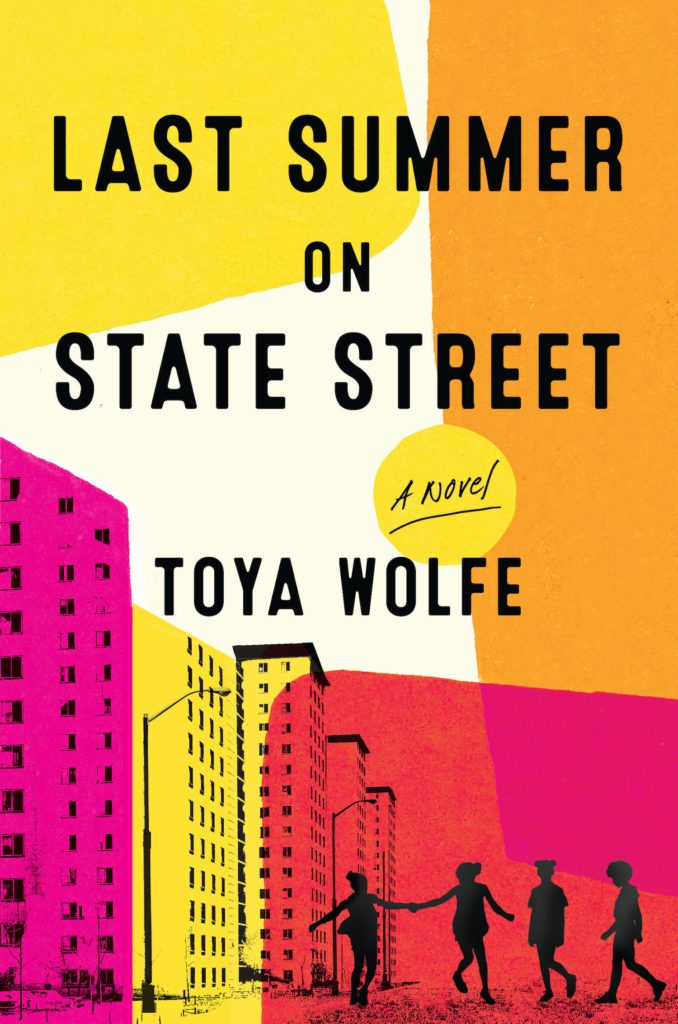
Last Summer on State Street (2022)
by Toya Wolfe
In 1999, the Robert Taylor Homes are coming down, tower by tower. As the Chicago Housing Authority disassembles the projects, 12-year-old Fe Fe Stevens and her friends are mostly concerned with school, church, and jumping rope. The demolition going on around the girls is, maybe, a metaphor for the end of childhood. Fe Fe’s brother joins a gang, then goes to jail. One of her friends becomes pregnant. Fe Fe moves to Hyde Park, then California, but returns to visit the girl who never got away from the South Side. Wolfe grew up in the Taylor Homes before earning an MFA in creative writing at Columbia College.
Related Content



